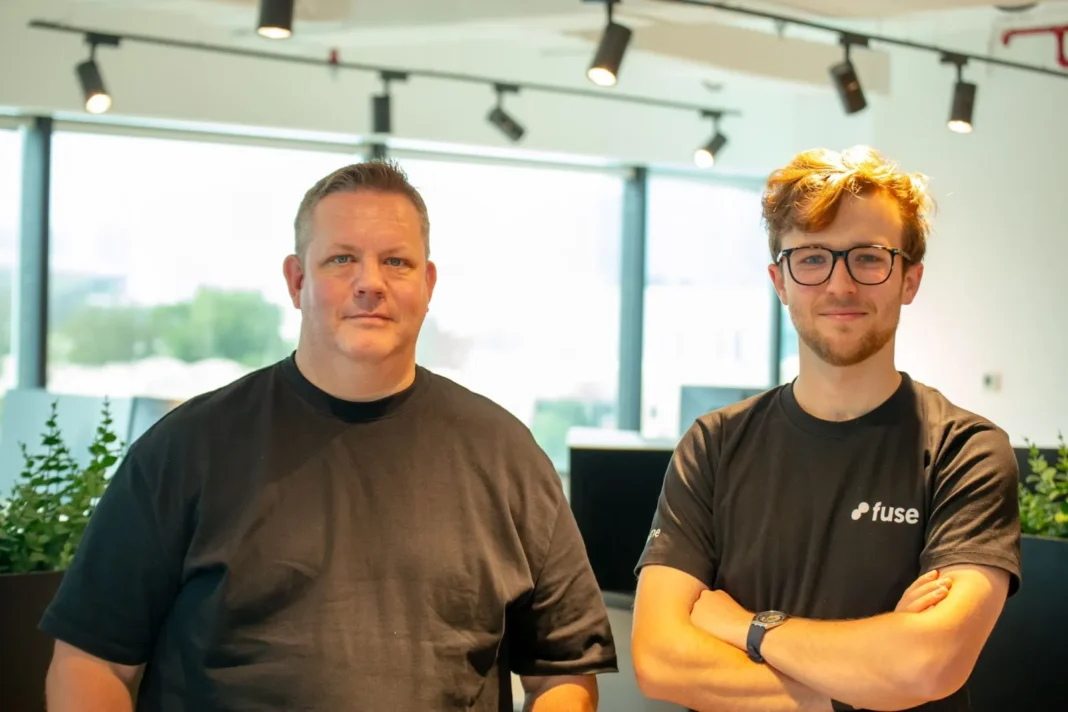Expanding into the Middle East and North Africa (MENA) has long been a complex and costly endeavor for global businesses, largely due to fragmented regulations and inconsistent banking systems. Dubai-based fintech startup Fuse is stepping in to simplify this challenge. With the launch of its cross-border payments API, the company has just raised $6.6 million in seed funding to help streamline financial transactions across the region.
Founded in 2023 by George Davis, former co-founder of BVNK, and James Smith, Fuse claims to be the first infrastructure-grade payments platform in MENA offering virtual International Bank Account Numbers (IBANs)—a service widely available in Europe but virtually non-existent in the Middle East. “We’re currently the only provider of virtual IBANs in the Middle East,” Davis told TechCrunch. “It’s a hyper-commoditized product in Europe, but here, it simply didn’t exist.”
Fuse’s product suite includes USD virtual accounts for cross-border transactions and dirham-denominated IBANs for local payments in the UAE. This innovation allows international companies to send and receive payments in the region without having to establish a local entity or deal with complex foreign exchange issues and licensing hurdles.
Historically, companies looking to operate in MENA had to choose between small local payment providers that lacked scale or large cross-border players like Thunes, which often operate without full local licenses. Fuse fills this gap by offering a fully licensed, infrastructure-grade platform that facilitates smooth money movement through local payout rails and virtual accounts.
One prominent use case is for employers of record (EORs). Typically, a U.S. company with employees in the UAE would need a local bank account—something difficult to obtain without residency or licensing—to pay salaries in dirhams under their business name. Fuse solves this by offering USD-denominated virtual IBANs, which companies can top up and use to pay salaries locally in AED.
Customers can also “create unlimited IBANs in their end customers’ names and make local payments,” said Davis. These customers don’t need to be UAE residents or maintain a local presence—they can operate from anywhere in the world. Currently, Fuse supports over 20 clients, including EORs, remittance companies, crypto platforms, marketplaces, and PSPs. Its client list includes well-known platforms like dLocal, RemotePass, Deel, Airbnb, and Etsy, all expanding their operations into MENA.
While the UAE remains Fuse’s core market, the company is expanding quickly, enabling direct payouts in Saudi Arabia, Egypt, and Jordan. It also supports wholesale foreign exchange for Indian and Chinese businesses operating in the UAE who need to repatriate funds through controlled corridors—some of the busiest trade routes in the region.
Although similar startups exist worldwide, Davis likens Fuse more to Visa-backed Currencycloud than to other regional fintechs. “Currencycloud is global, but Fuse is built specifically for the Middle East,” he emphasized.
The timing couldn’t be better. Digital payments and e-commerce are booming across MENA, making it fertile ground for regional payment infrastructure. “Global cross-border payments tend to be winner-takes-all markets,” said Davis. “But to win, you now need local specialists. That’s what we’re building.”
So far, the strategy is working. Fuse is already processing hundreds of millions of dollars per quarter and has been growing revenue by more than 50% month-over-month. In fact, the company made more this quarter than it did in the entire previous year. Its revenue model is built on transaction fees.
Davis’s passion for simplifying payments in MENA stems from personal experience. At TrueLayer, he helped transform the company into a leading open banking platform. Later, at BVNK, which he co-founded, Davis encountered firsthand the challenges of expanding into the Middle East. These experiences inspired him to launch Fuse alongside Smith, a trusted engineering leader from both previous ventures. Together, they now lead a 12-person team across engineering, product, and compliance.
The $6.6 million seed round was led by Northzone, the European VC firm known for backing Klarna and Spotify. Other participants include Flourish Ventures, Alter Global, and angel investors such as Flutterwave CEO Olugbenga “GB” Agboola and former Morgan Stanley MENA president George Makhoul.
“The Fuse team is transforming payment infrastructure in one of the world’s fastest-growing markets,” said Sanjot Malhi, partner at Northzone. “Their ability to simplify MENA’s complex cross-border flows is exactly what the region needs.”
“The Fuse team is transforming payment infrastructure in one of the world’s fastest-growing markets,” said Sanjot Malhi, partner at Northzone. “Their ability to simplify MENA’s complex cross-border flows is exactly what the region needs”
Looking ahead, Fuse plans to use the new funding to expand its team, acquire more regional licenses, and broaden its product offerings beyond the UAE. As digital commerce continues to grow across MENA, Fuse is positioning itself as a key enabler of the region’s fintech evolution.


